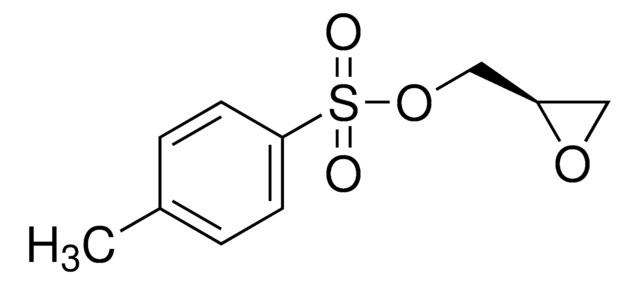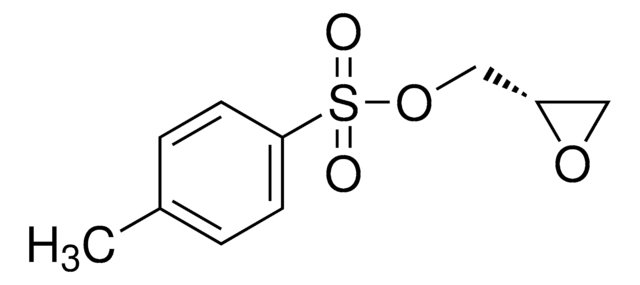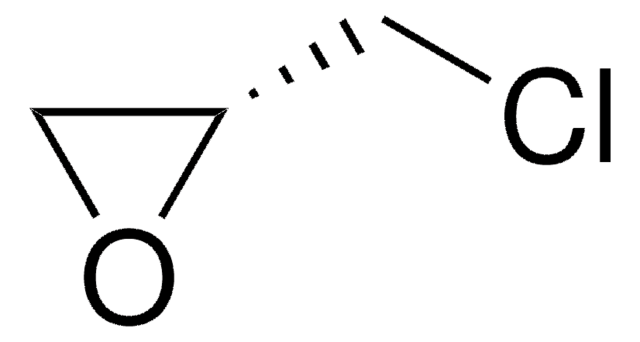474789
(S)-(−)-Glycidol
97%, optical purity ee: 98% (GLC)
Synonyme(s) :
(S)-(−)-2,3-Epoxy-1-propanol, (S)-(−)-Oxirane-2-methanol
About This Item
Produits recommandés
Niveau de qualité
Essai
97%
Activité optique
[α]20/D −15°, neat
Pureté optique
ee: 98% (GLC)
Indice de réfraction
n20/D 1.433 (lit.)
pb
66-67 °C/19 mmHg (lit.)
Densité
1.116 g/mL at 20 °C (lit.)
Groupe fonctionnel
ether
hydroxyl
Température de stockage
−20°C
Chaîne SMILES
OC[C@H]1CO1
InChI
1S/C3H6O2/c4-1-3-2-5-3/h3-4H,1-2H2/t3-/m0/s1
Clé InChI
CTKINSOISVBQLD-VKHMYHEASA-N
Vous recherchez des produits similaires ? Visite Guide de comparaison des produits
Description générale
Application
Mention d'avertissement
Danger
Mentions de danger
Classification des risques
Acute Tox. 2 Inhalation - Acute Tox. 4 Dermal - Acute Tox. 4 Oral - Carc. 1B - Eye Irrit. 2 - Muta. 2 - Repr. 1B - Skin Irrit. 2 - STOT SE 3
Organes cibles
Respiratory system
Code de la classe de stockage
6.1A - Combustible acute toxic Cat. 1 and 2 / very toxic hazardous materials
Classe de danger pour l'eau (WGK)
WGK 3
Point d'éclair (°F)
161.6 °F
Point d'éclair (°C)
72 °C
Équipement de protection individuelle
Eyeshields, Faceshields, Gloves, type ABEK (EN14387) respirator filter
Faites votre choix parmi les versions les plus récentes :
Déjà en possession de ce produit ?
Retrouvez la documentation relative aux produits que vous avez récemment achetés dans la Bibliothèque de documents.
Les clients ont également consulté
Chromatograms
suitable for GCsuitable for GCsuitable for GCNotre équipe de scientifiques dispose d'une expérience dans tous les secteurs de la recherche, notamment en sciences de la vie, science des matériaux, synthèse chimique, chromatographie, analyse et dans de nombreux autres domaines..
Contacter notre Service technique









